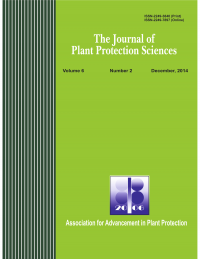Integrated pest management in tea: prospects and future strategies in Bangladesh
M. S. A. Mamun and M. Ahmed
ABSTRACT
Tea, Camellia sinensis (L.) O. Kuntze, is a perennial crop and grown as a monoculture on large contiguous areas. Tea plant is subjected to the attack of several notorious pests such as insects, mites, nematodes, diseases and weeds. Globally 1034 species of arthropods and 82 species of nematodes are associated with tea plants. Among them 25 species of insects, 4 species of mites and 10 species of nematodes are recorded from Bangladesh. Enormous crop loss was incurred due to the attack of these pests and largely responsible for the declining productivity of tea. Extensive use of chemical pesticides began only a few decades ago with tremendous immediate economic gains but its abuses were not foreseen or ignored. As a consequence there arose the development of resistance to pesticides, pest resurgence and undesirable pesticide residue in the made tea as the major problems. Current trends in eco-friendly insect pest management practices emphasize the host plant resistance, preparation and application methods of new botanicals and microbial pesticide formulations, evaluation of field bio-efficacy and conservation of biological agents, cultural control measures, genetic techniques and sex pheromones technology. In tea husbandry, cultural control measures such as plucking, pruning, shade regulation, field sanitation, fertilizer application, manipulation or destruction of alternate hosts and selection of pest resistant/tolerant varieties and mechanical mechanisms like manual removal, heat treatments, light traps, use of bio-pesticides, bio-control agents and sex pheromone trap need to be given more importance in pest management programme. A tentative IPM strategy for tea cultivation in Bangladesh has been proposed in this paper. Thus the proposed integrated pest management (IPM) strategy should help tea industry for successful long lasting plantations which will ensure consistent crop with much care but lesser cost.
To share on other social networks, click on any share button. What are these?







